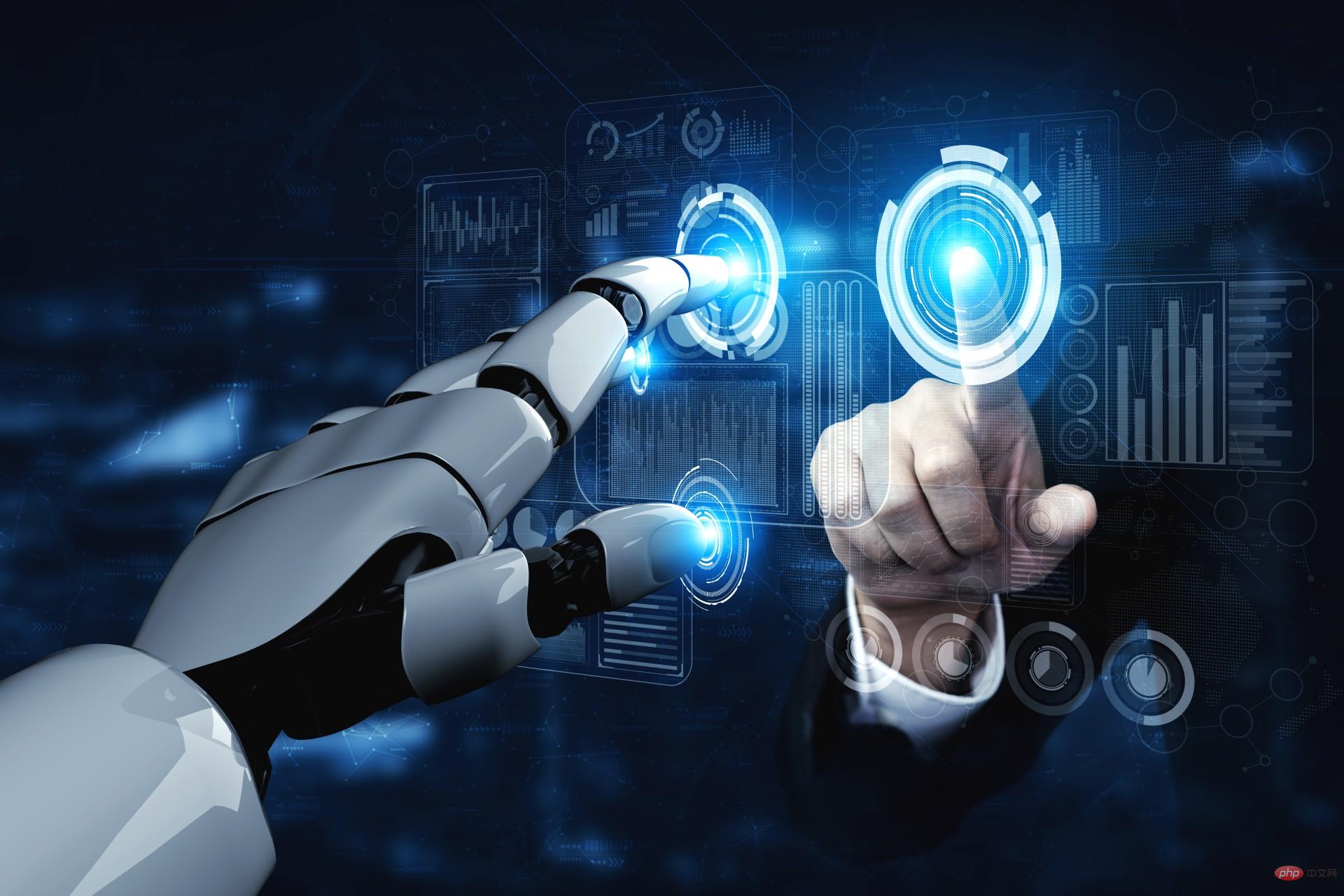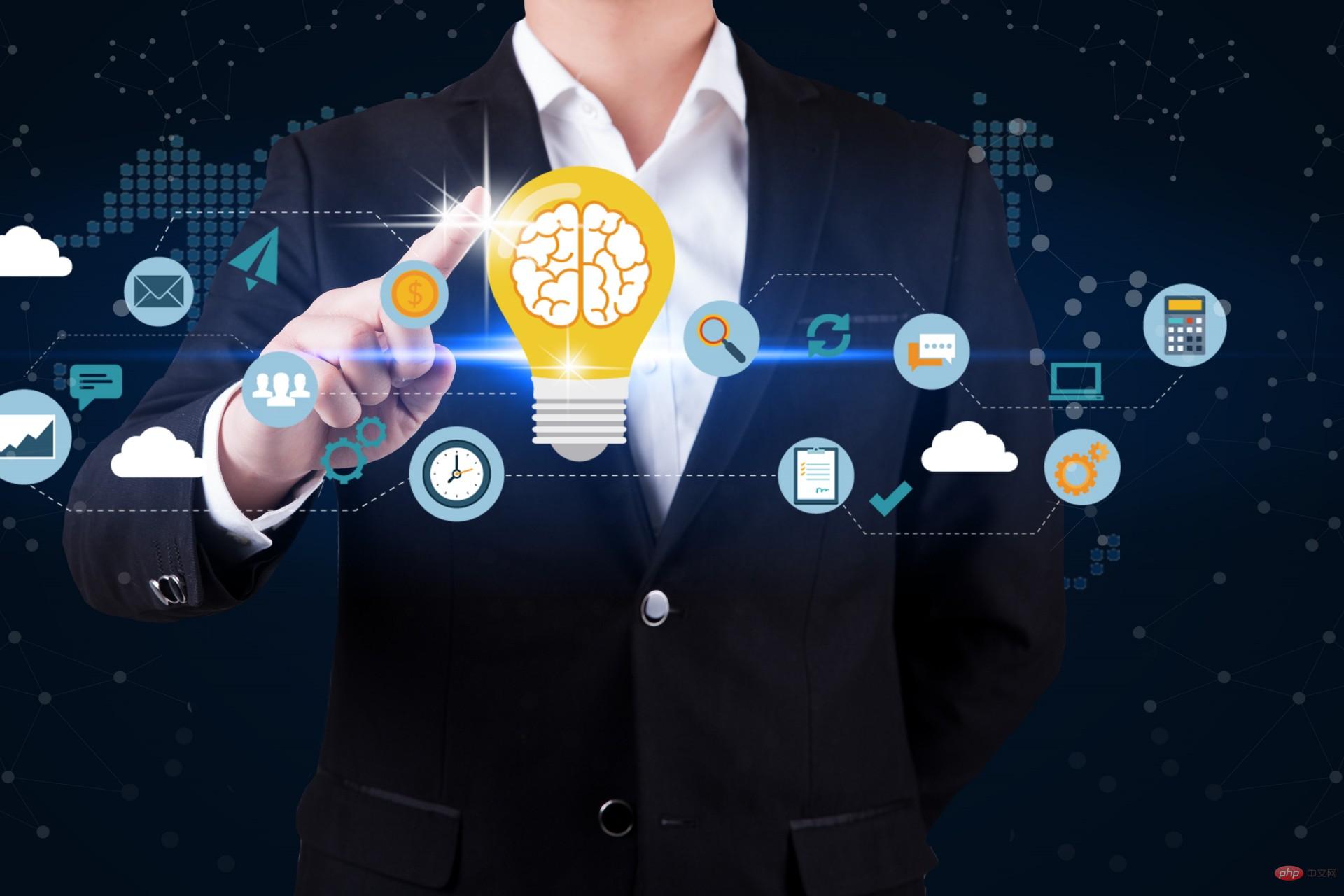The advantages and disadvantages of artificial intelligence are automation and efficiency improvement, intelligent decision-making and prediction, personalized and customized services, autonomous driving and intelligent transportation, medical diagnosis and treatment, etc. The disadvantages are data privacy and Security issues, employment and social impacts, ethical issues, explainability and transparency, technical limitations and errors, etc. Detailed introduction: 1. Automation and efficiency improvement. Artificial intelligence can automate heavy, repetitive and lengthy tasks, thereby improving work efficiency. It can process large amounts of data and information, conduct fast and accurate analysis, etc.

The operating system for this tutorial: Windows 10 system, DELL G3 computer.
Artificial Intelligence (AI), as a cutting-edge technology, has many advantages and potential application values, but it also has some challenges and shortcomings. Below I will detail the advantages and disadvantages of artificial intelligence.
Advantages:
1. Automation and efficiency improvement: Artificial intelligence can automate heavy, repetitive and lengthy tasks, thereby improving work efficiency . It can process large amounts of data and information and perform fast and accurate analysis to help people make better decisions and plans.
2. Intelligent decision-making and prediction: Artificial intelligence can analyze and learn large amounts of data, identify patterns and trends, and make intelligent decisions and predictions. It can help businesses and organizations make more accurate market forecasts, risk assessments and strategic planning.
3. Personalized and customized services: Artificial intelligence can provide personalized and customized services based on individual needs and preferences. For example, recommendation systems can recommend personalized products and content to users based on their interests and historical behaviors.
4. Autonomous driving and intelligent transportation: Artificial intelligence has great potential in the fields of autonomous driving and intelligent transportation. It can realize autonomous navigation and intelligent traffic management of vehicles through perception, decision-making and control systems, improving traffic safety and efficiency.
5. Medical diagnosis and treatment: Artificial intelligence can help doctors make disease diagnosis and treatment decisions. It can improve the quality and effectiveness of healthcare by analyzing medical images, medical record data and genomic data to provide accurate diagnosis and personalized treatment options.
Disadvantages:
1. Data privacy and security issues: Artificial intelligence requires a large amount of data for learning and decision-making, which may involve Issues of personal privacy and data security. Failure to properly handle and protect data can lead to risks of data leakage and misuse.
2. Employment and social impact: The widespread application of artificial intelligence may lead to the disappearance of some traditional jobs, thus affecting employment. In addition, the development of artificial intelligence may also lead to an increase in social inequality, creating a digital divide and a skills gap.
3. Ethical issues: The development of artificial intelligence has brought about a series of ethical issues. For example, how should self-driving vehicles weigh the safety of human life and property when making ethical decisions? How do artificial intelligence algorithms ensure fair and unbiased decision-making? These issues require in-depth thinking and resolution.
4. Explainability and transparency: The black-box nature of artificial intelligence makes its decision-making and reasoning processes difficult to explain and understand. This gives people cause for concern, especially in key areas where decisions need to be explained, such as justice, finance, etc.
5. Technical limitations and errors: There are still some limitations and errors in artificial intelligence technology. For example, artificial intelligence systems may be insufficiently adaptable to changes in specific situations and new areas, leading to incorrect decisions and predictions.
In summary, artificial intelligence has many advantages such as automation and efficiency improvement, intelligent decision-making and prediction, personalized and customized services, autonomous driving and intelligent transportation, medical diagnosis and treatment, etc. However, AI also faces a range of challenges and shortcomings, including data privacy and security issues, employment and social impacts, ethical issues, explainability and transparency issues, and technical limitations and errors. In promoting the development and application of artificial intelligence, it is necessary to balance its advantages and disadvantages and take corresponding measures to solve potential problems.
The above is the detailed content of What are the advantages and disadvantages of artificial intelligence. For more information, please follow other related articles on the PHP Chinese website!
 2023年机器学习的十大概念和技术Apr 04, 2023 pm 12:30 PM
2023年机器学习的十大概念和技术Apr 04, 2023 pm 12:30 PM机器学习是一个不断发展的学科,一直在创造新的想法和技术。本文罗列了2023年机器学习的十大概念和技术。 本文罗列了2023年机器学习的十大概念和技术。2023年机器学习的十大概念和技术是一个教计算机从数据中学习的过程,无需明确的编程。机器学习是一个不断发展的学科,一直在创造新的想法和技术。为了保持领先,数据科学家应该关注其中一些网站,以跟上最新的发展。这将有助于了解机器学习中的技术如何在实践中使用,并为自己的业务或工作领域中的可能应用提供想法。2023年机器学习的十大概念和技术:1. 深度神经网
 超参数优化比较之网格搜索、随机搜索和贝叶斯优化Apr 04, 2023 pm 12:05 PM
超参数优化比较之网格搜索、随机搜索和贝叶斯优化Apr 04, 2023 pm 12:05 PM本文将详细介绍用来提高机器学习效果的最常见的超参数优化方法。 译者 | 朱先忠审校 | 孙淑娟简介通常,在尝试改进机器学习模型时,人们首先想到的解决方案是添加更多的训练数据。额外的数据通常是有帮助(在某些情况下除外)的,但生成高质量的数据可能非常昂贵。通过使用现有数据获得最佳模型性能,超参数优化可以节省我们的时间和资源。顾名思义,超参数优化是为机器学习模型确定最佳超参数组合以满足优化函数(即,给定研究中的数据集,最大化模型的性能)的过程。换句话说,每个模型都会提供多个有关选项的调整“按钮
 人工智能自动获取知识和技能,实现自我完善的过程是什么Aug 24, 2022 am 11:57 AM
人工智能自动获取知识和技能,实现自我完善的过程是什么Aug 24, 2022 am 11:57 AM实现自我完善的过程是“机器学习”。机器学习是人工智能核心,是使计算机具有智能的根本途径;它使计算机能模拟人的学习行为,自动地通过学习来获取知识和技能,不断改善性能,实现自我完善。机器学习主要研究三方面问题:1、学习机理,人类获取知识、技能和抽象概念的天赋能力;2、学习方法,对生物学习机理进行简化的基础上,用计算的方法进行再现;3、学习系统,能够在一定程度上实现机器学习的系统。
 得益于OpenAI技术,微软必应的搜索流量超过谷歌Mar 31, 2023 pm 10:38 PM
得益于OpenAI技术,微软必应的搜索流量超过谷歌Mar 31, 2023 pm 10:38 PM截至3月20日的数据显示,自微软2月7日推出其人工智能版本以来,必应搜索引擎的页面访问量增加了15.8%,而Alphabet旗下的谷歌搜索引擎则下降了近1%。 3月23日消息,外媒报道称,分析公司Similarweb的数据显示,在整合了OpenAI的技术后,微软旗下的必应在页面访问量方面实现了更多的增长。截至3月20日的数据显示,自微软2月7日推出其人工智能版本以来,必应搜索引擎的页面访问量增加了15.8%,而Alphabet旗下的谷歌搜索引擎则下降了近1%。这些数据是微软在与谷歌争夺生
 荣耀的人工智能助手叫什么名字Sep 06, 2022 pm 03:31 PM
荣耀的人工智能助手叫什么名字Sep 06, 2022 pm 03:31 PM荣耀的人工智能助手叫“YOYO”,也即悠悠;YOYO除了能够实现语音操控等基本功能之外,还拥有智慧视觉、智慧识屏、情景智能、智慧搜索等功能,可以在系统设置页面中的智慧助手里进行相关的设置。
 人工智能在教育领域的应用主要有哪些Dec 14, 2020 pm 05:08 PM
人工智能在教育领域的应用主要有哪些Dec 14, 2020 pm 05:08 PM人工智能在教育领域的应用主要有个性化学习、虚拟导师、教育机器人和场景式教育。人工智能在教育领域的应用目前还处于早期探索阶段,但是潜力却是巨大的。
 30行Python代码就可以调用ChatGPT API总结论文的主要内容Apr 04, 2023 pm 12:05 PM
30行Python代码就可以调用ChatGPT API总结论文的主要内容Apr 04, 2023 pm 12:05 PM阅读论文可以说是我们的日常工作之一,论文的数量太多,我们如何快速阅读归纳呢?自从ChatGPT出现以后,有很多阅读论文的服务可以使用。其实使用ChatGPT API非常简单,我们只用30行python代码就可以在本地搭建一个自己的应用。 阅读论文可以说是我们的日常工作之一,论文的数量太多,我们如何快速阅读归纳呢?自从ChatGPT出现以后,有很多阅读论文的服务可以使用。其实使用ChatGPT API非常简单,我们只用30行python代码就可以在本地搭建一个自己的应用。使用 Python 和 C
 人工智能在生活中的应用有哪些Jul 20, 2022 pm 04:47 PM
人工智能在生活中的应用有哪些Jul 20, 2022 pm 04:47 PM人工智能在生活中的应用有:1、虚拟个人助理,使用者可通过声控、文字输入的方式,来完成一些日常生活的小事;2、语音评测,利用云计算技术,将自动口语评测服务放在云端,并开放API接口供客户远程使用;3、无人汽车,主要依靠车内的以计算机系统为主的智能驾驶仪来实现无人驾驶的目标;4、天气预测,通过手机GPRS系统,定位到用户所处的位置,在利用算法,对覆盖全国的雷达图进行数据分析并预测。

Hot AI Tools

Undresser.AI Undress
AI-powered app for creating realistic nude photos

AI Clothes Remover
Online AI tool for removing clothes from photos.

Undress AI Tool
Undress images for free

Clothoff.io
AI clothes remover

AI Hentai Generator
Generate AI Hentai for free.

Hot Article

Hot Tools

Dreamweaver CS6
Visual web development tools

WebStorm Mac version
Useful JavaScript development tools

Notepad++7.3.1
Easy-to-use and free code editor

MinGW - Minimalist GNU for Windows
This project is in the process of being migrated to osdn.net/projects/mingw, you can continue to follow us there. MinGW: A native Windows port of the GNU Compiler Collection (GCC), freely distributable import libraries and header files for building native Windows applications; includes extensions to the MSVC runtime to support C99 functionality. All MinGW software can run on 64-bit Windows platforms.

Atom editor mac version download
The most popular open source editor






